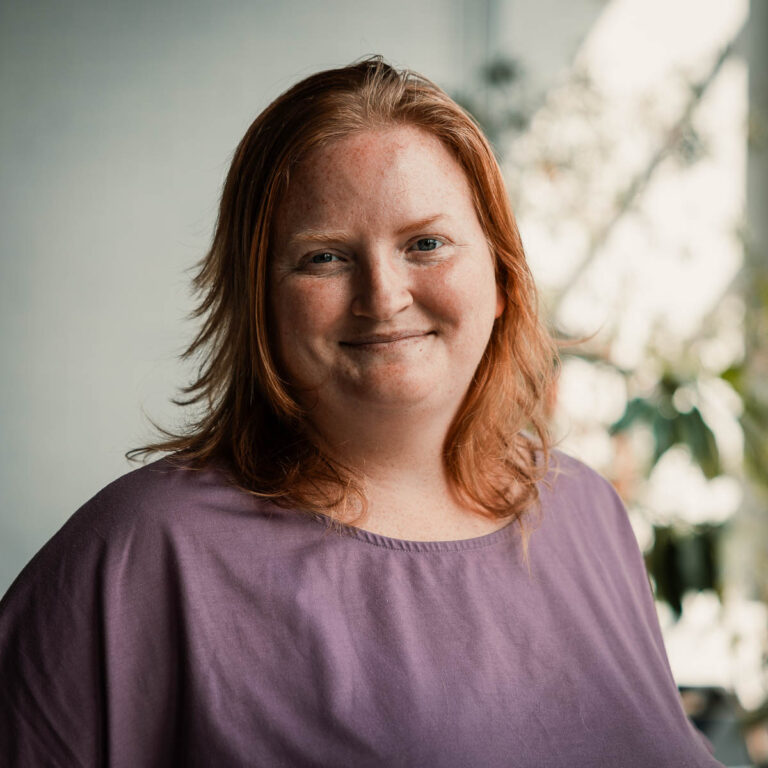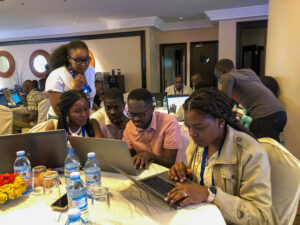Empowering people to build and maintain the internet
Read about the Internet Society's empowerment program and about all the ways they teach people about using and maintaining the internet.


An important part of internet accessibility is having the skills to use and maintain the internet. Our partner the Internet Society sees how important these skills are for bridging the digital divide and actively works to teach people globally through their empowerment program. We are proud to partner with them as they work on this important part of internet accessibility and asked them some questions to explain what the empowerment program is all about.
Can you explain in a nutshell what the purpose of the empowerment program is?
The Internet Society’s empowerment program is a set of trainings and fellowships created to equip people from around the world with the skills they need to build, maintain, and champion an open, globally-connected, secure, and trustworthy Internet. We seek to reach and include people who might not normally have access to these opportunities. Just as we need to close the gap in who has access to the Internet, we need to close the gap in who participates in building and shaping it.
Why did you start to offer courses? How does this help your mission?
Our vision is that the Internet is for everyone. Yet the digital divide excludes over 3 billion people from the Internet’s benefits. To close this gap and enable the Internet to deliver on its full potential, we need qualified technologists, policymakers, and community leaders who have the knowledge and skills required to grow the Internet and defend it against ongoing threats to its openness, resilience, and security.
Practical, accessible, and affordable Internet training and professional development programs are hard to come by. We started offering our courses and fellowships in order to prepare and support Internet champions from all regions in any community, but especially from those that have been under-represented in the Internet ecosystem to date.
Empowering diverse groups of people everywhere to build and shape the Internet is vital to the Internet’s ability to create value for generations to come.
How do fellows and course participants use the skills they have learned in the courses?
Fellows go on to use their experiences in a diverse range of settings and applications. Nojus Saad, one of our Internet Governance Forum (IGF) Youth Ambassadors in 2020 used his experience to start a digital literacy training for more than 80 underserved young people in Iraq. Mr. Saad went on to be a Senior Fellow at ICANN and a regional ambassador at the International Telecommunications Union, and has founded an international organization focusing on digital health access in rural communities. Another example is Ibrahim Ola Garba, one of our 2021 Early Career Fellows who used his experience to build a low-cost and community-owned telecommunication infrastructure (i.e. a community network) for the people of Kakuri, Nigeria to lower the community’s Internet access cost.
Course participants use the skills in many ways – they learn to build computer networks and improve their operation, protect online privacy, engage in Internet governance and analysis, and more.
How do these fellowships and courses help close the digital divide?
As a whole, our empowerment program serves to make the Internet bigger and stronger, so that it can reach more people more securely and more equitably than ever before. It brings the Internet into the hands of the people around the world.
More specifically, our technical courses provide practical skills on how to connect more people to the Internet. Learners are equipped to build and scale Internet exchange points, design and deploy local area networks, configure servers, improve routing security, and more. Our policy courses help learners protect and foster online privacy, assess the impact of proposed policies and regulations to the Internet infrastructure, and effectively engage in Internet governance. Our fellowship programs are equipping the next generation of diverse and well-rounded Internet champions. These components work together to grow and strengthen the Internet for everyone, especially in places that have been under-served.
What are the major future obstacles for closing the digital divide?
We see two particular obstacles which we are trying to address.
1) The high costs of connectivity. In most parts of the world, there are many people who are priced out of Internet access. Even if the infrastructure and services exist, it is too expensive. At the Internet Society, we work with local communities on complementary access solutions, such as community networks, that will help decrease costs and improve connectivity at the same time.
2) Lack of technical skills. We need technology workers who have the know-how to build and maintain Internet infrastructure. We need policymakers to understand how the Internet works and how to keep it open, globally connected, secure, and trustworthy. Our courses and fellowships focus on these audiences. However, more can be done, including improving general digital literacy so that people can make the most of Internet access once they have it. Looking ahead we plan to develop courses and partnerships to expand our empowerment program to support general digital literacy.
All images are used with permission from: ©Internet Society / Victor Ndonnang